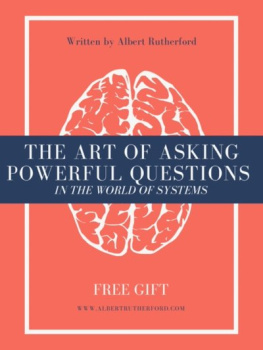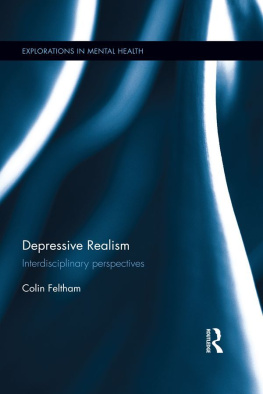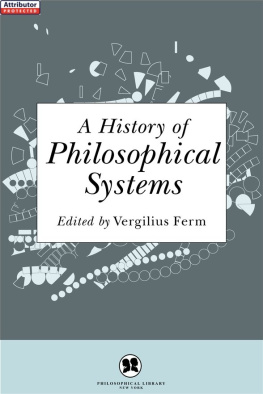
Systems Thinking, Critical Realism and Philosophy
Systems Thinking, Critical Realism and Philosophy: A Confluence of Ideas seeks to re-address the whole question of philosophy and systems thinking for the twenty-first century and to provide a new work that may be of value to both systems and philosophy. This is a highly opportune time when different fields critical realism, philosophy of science and systems thinking are all developing around the same set of concepts and yet not realizing it.
This book will be of interest to the academic systems community worldwide; due to its interdisciplinary coverage, it will also be of relevance to a wide range of scholars in other disciplines, particularly philosophy but also operational research, information systems and sociology.
John Mingers is Professor of Operational Research and Systems at Kent Business School, University of Kent.
Ontological explorations
Other titles in this series:
From One Empire to the Next
Radha DSouza
Science for Humanism
The recovery of human agency
Charles R. Varela
Philosophical Problems of Sustainability
Taking sustainability forward with a critical realist approach
Jenneth Parker
Dialectic and Difference
Dialectical critical realism and the grounds of justice
Alan Norrie
Interdisciplinarity and Climate Change
Transforming knowledge and practice for our global future
Edited by Roy Bhaskar, Cheryl Frank, Karl Georg Hyer, Petter Naess and Jenneth Parker
Conversations about Reflexivity
Edited by Margaret S. Archer
Relational Sociology
A new paradigm for the social sciences
Pierpaolo Donati
Sociological Realism
Edited by Andrea M. Maccarini, Emmanuele Morandi and Riccardo Prandini
The Economics of Science: A Critical Realist Overview
Volume 1: Illustrations and philosophical preliminaries
David Tyfield
The Economics of Science: A Critical Realist Overview
Volume 2: Towards a synthesis of political economy and science and technology studies
David Tyfield
Ontology Revisited
Metaphysics in social and political philosophy
Ruth Groff
Childhoods, Real and Imagined
Volume 1: An introduction to critical realism and childhood studies
Priscilla Alderson
Naturalizing Critical Realist Social ontology
Tuukka Kaidesoja
Whats Critical About Critical Realism?
Essays in reconstructive social theory
Frederic Vandenberghe
Integrating Knowledge Through Interdisciplinary Research
Problems of theory and practice
Dominic Holland
The Contradictions of Love
Towards a feminist-realist ontology of sociosexuality
Lena Gunnarson
Systems Thinking, Critical Realism and Philosophy
A confluence of ideas
John Mingers
Systems Thinking, Critical Realism and Philosophy
A confluence of ideas
John Mingers
First published 2014
by Routledge
2 Park Square, Milton Park, Abingdon, Oxon OX14 4RN
and by Routledge
711 Third Avenue, New York, NY 10017
Routledge is an imprint of the Taylor & Francis Group, an informa business
2014 John Mingers
The right of John Mingers to be identified as author of this work has been asserted by him in accordance with sections 77 and 78 of the Copyright, Designs and Patents Act 1988.
All rights reserved. No part of this book may be reprinted or reproduced or utilized in any form or by any electronic, mechanical, or other means, now known or hereafter invented, including photocopying and recording, or in any information storage or retrieval system, without permission in writing from the publishers.
Trademark notice : Product or corporate names may be trademarks or registered trademarks, and are used only for identification and explanation without intent to infringe.
British Library Cataloguing in Publication Data
A catalogue record for this book is available from the British Library
Library of Congress Cataloging-in-Publication Data
A catalog record has been requested for this book
ISBN: 978-0-415-51953-3 (hbk)
ISBN: 978-1-315-77450-3 (ebk)
Typeset in Times New Roman
by Wearset Ltd, Boldon, Tyne and Wear
Dedicated to my family Julie, Laura and Emma
Contents
PART I
Foundations
PART II
Ontological issues
PART III
Epistemological issues
PART IV
Practical issues
Portions of this book have appeared in other works of mine prior to its publication. I would like to thank the publishers for their permission to reproduce this material.
: 2004. Re-establishing the Real: Critical Realism and Information Systems Research, in J. Mingers and L. Willcocks (eds) Social Theory and Philosophy for Information Systems , Chichester: Wiley, pp. 372406.
: 2011. The Contribution of Systemic Thought to Critical Realism, Journal of Critical Realism (10), pp. 303330.
: 2002. Can Social Systems Be Autopoietic? Assessing Luhmanns Social Theory, The Sociological Review (50:2), pp. 278299.
: 2004. Can Social Systems Be Autopoietic? Bhaskars and Giddens Social Theories, Journal for the Theory of Social Behaviour (34:4), pp. 403426.
: 2006. Realising Systems Thinking: Knowledge and Action in Management Science , New York: Springer.
: 2008. Management Knowledge and Knowledge Management: Realism and Forms of Truth, Knowledge Management Research and Practice (6), pp. 6276.
: 2006. A Critique of Statistical Modelling in Management Science from a Critical Realist Perspective: Its Role within Multimethodology, Journal of the Operational Research Society (57), pp. 202219.
: 2009. Discourse Ethics and Critical Realist Ethics: An Evaluation in the Context of Business, Journal of Critical Realism (8:2), pp. 172200.
I would like to thank Mark Johnson and Soren Brier for reading sections of the book and making constructive comments.
In 1972, Ervin Laszlo published a seminal book called Introduction to Systems Philosophy: Towards a New Paradigm of Contemporary Thought (Laszlo 1972). This was a book that made a major contribution to systems thinking in the sense that it covered all the main philosophical questions ontology, epistemology, cognition, ethics, metaphysics and so on. But it was also a book that aimed to make a contribution to philosophy. Coming out of the intellectual ferment of the 1960s, it argued that philosophy also needed systems thinking: that systems provided a new and vibrant synthetic approach to traditional philosophy, especially in contrast to the sterile impoverishment of the Western analytic tradition.
Unfortunately, for many years the call fell on deaf ears mainstream philosophy, particularly in the UK and the US, carried on in its analytic and positivist form. But outside philosophy, especially within the social sciences, huge debates developed about the nature of science, particularly social science, in terms of a conflict between positivism and interpretivism/constructivism; the development of critically inspired, neo-Marxist positions; and finally post-structuralism and postmodernism, which threatened an end to philosophy almost as Fukuyama (1992) threatened an end to history.
Next page







